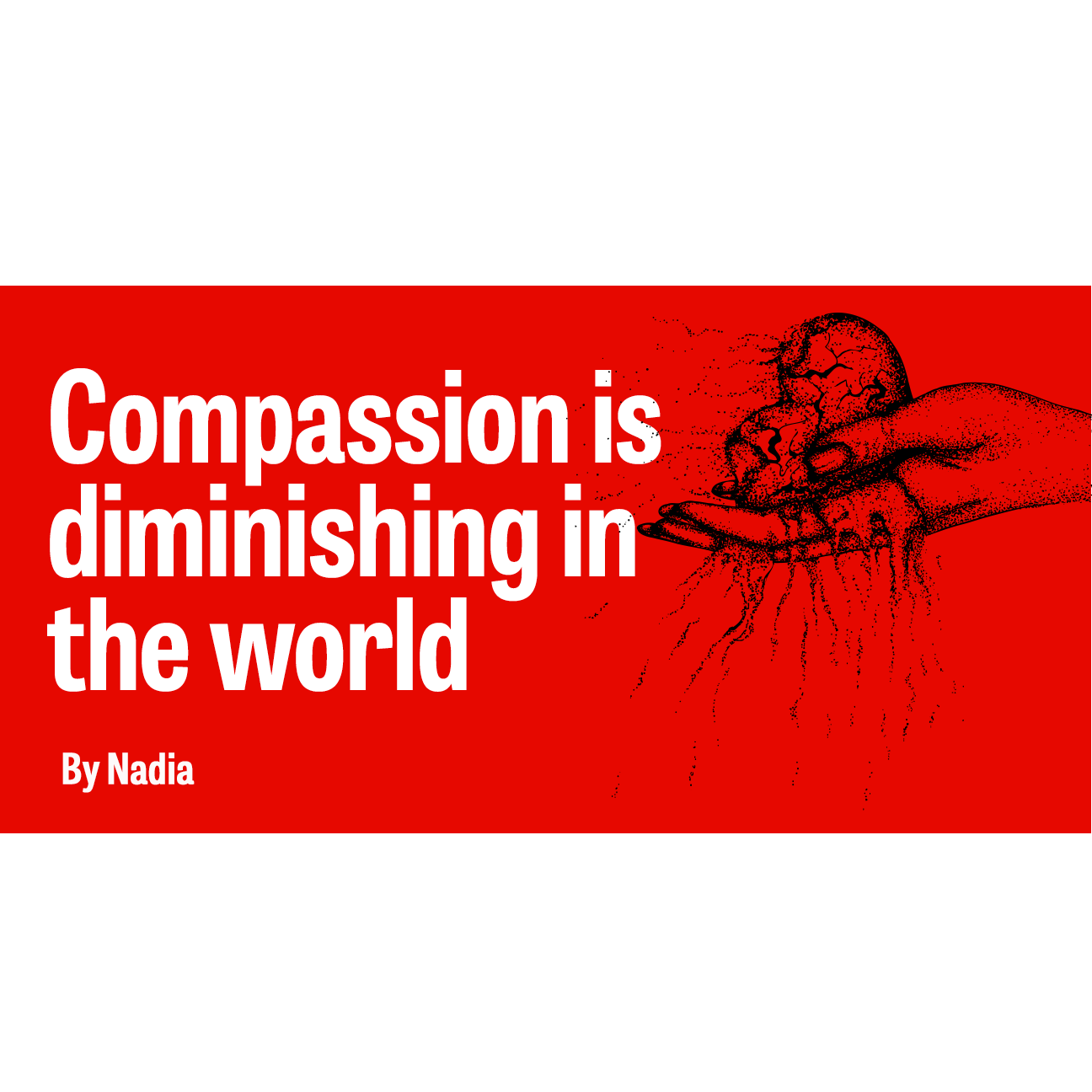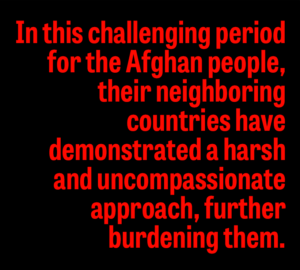
07 Mar Compassion is diminishing in the world
Nadia (not her real name), a young unmarried woman, resides alone in Kabul with her elderly mother. They lack the support of any siblings, and the absence of her father and brother during these challenging times under the rule of the misogynistic Taliban is deeply felt. The Taliban’s oppressive policies have stripped women of their rights to work and live in peace. Nadia is facing a pressing concern as her mother’s health has deteriorated, necessitating an urgent operation. Unfortunately, Afghanistan faces a shortage of skilled doctors, and the quality of healthcare is often subpar. The lack of well-qualified teachers and education further hinders the local production of trained medical professionals.
 In such circumstances, people are left with no choice but to seek medical treatment in neighboring countries like Pakistan or India. However, India has closed its doors to Afghan nationals since the Taliban came to power, and obtaining a visa for Pakistan or Iran has become an expensive and cumbersome process. Faced with desperation to save her mother’s life, Nadia applied for a Pakistani visa and reluctantly paid a bribe of almost $1,500 to expedite the process. Her mother’s life is the most precious thing to her, and she is willing to go to any length to ensure her well-being.
In such circumstances, people are left with no choice but to seek medical treatment in neighboring countries like Pakistan or India. However, India has closed its doors to Afghan nationals since the Taliban came to power, and obtaining a visa for Pakistan or Iran has become an expensive and cumbersome process. Faced with desperation to save her mother’s life, Nadia applied for a Pakistani visa and reluctantly paid a bribe of almost $1,500 to expedite the process. Her mother’s life is the most precious thing to her, and she is willing to go to any length to ensure her well-being.
Having obtained the visa with great difficulty, Nadia went to the bank to withdraw money from their meager savings for her mother’s treatment, as medical care in Pakistan is exorbitantly costly. To her dismay, the banks refused to grant access to their own funds, citing new restrictions imposed by the Taliban, allowing only $200 per month to be withdrawn from one’s account. In a state of desperation, she brought her frail, ailing mother in a wheelchair to the bank, hoping for compassion, but everyone heartlessly turned them away, offering only a cold “No.” She broke down, pleading for the funds needed to save her mother’s life. She implored them, urging their compassion as devout Muslims or compassionate humans, but they remained unyielding.
Left with no alternative, Nadia had to borrow money from friends and family. With borrowed funds, they embarked on a journey to Pakistan through the Torkham border between Pakistan and Afghanistan. Despite holding the necessary visa, their treatment by border police was inhumane. An eighty-year-old man was pushed, a teenage boy was mistreated in front of them, and women were subjected to harassment. The experience was excruciatingly painful and disheartening.
The actions of those responsible for destabilizing their neighboring country and making life unbearable for its people are deeply shameful. Such behavior contradicts the principles of peace, cooperation, and humanity. Pakistani authorities have repeatedly defended the Taliban and praised their actions. Nadia poses a simple question to them: Why do they desire such rulers for their neighbors, subjecting them to such a system, but not for their own country? If this system is truly desirable, why don’t they implement it in their own nation and experience it firsthand? Why impose it on others?
Furthermore, Pakistan and Iran are forcibly deporting millions of Afghans. Among these displaced individuals, some have valid medical reasons for their presence, while others are compelled to stay due to the ban on education for teenage girls in Afghanistan. In this challenging period for the Afghan people, their neighboring countries have demonstrated a harsh and uncompassionate approach, further burdening them. It is disheartening to witness the diminishing significance of compassion in the contemporary world.



